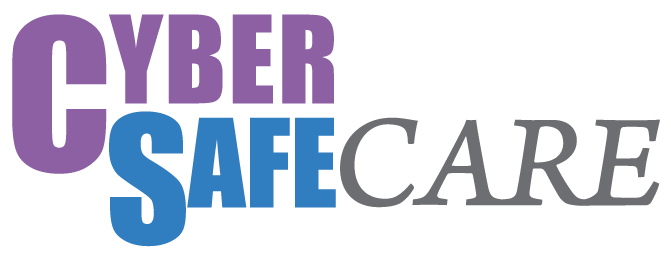About Cyberbullying
Bullying and Cyberbullying
Information on bullying and the law, and what caregivers can do (Royal Canadian Mounted Police).
What is Cyberbullying?
Insight into understanding cyberbullying (Public and Emergency Preparedness - Government of Canada).
GetCyberSafe
Resources and information for caregivers and youth on cyberbullying, including the risks, how to protect yourself, and information on digital citizenship (Government of Canada).
Cyberbullying
Various resources, including tips sheets, on cyberbullying, including cyberbullying and the law (Media Smarts).
PREVNet – Promoting Relationships & Eliminating Violence Network
Resources, including the difference between teasing vs. bullying, risks for children who bully, and specified sections for caregivers of children of various ages from preschool to caregivers of gender diverse youth (PREVNet).
Common Sense Media
Resources on cyberbullying for caregivers, educators and advocates, with information and videos for caregivers and educators of youth of all ages (Common Sense Media).
Helping Our Kids With Cyberbullying
The parents’ guide provides information about cyberbullying, tips to prevent or reduce its impact, and what to do if a child is cyberbullied or is cyberbullying someone else (Protect Kids Online).
Tech-Facilitated Violence - Criminal Case Law
A module designed to address how criminal law can respond to technologically-facilitated violence (The eQuality Project).
Bullying, Suicide, and Getting Help
Bullying and Suicide
A fact sheet on bullying and suicide, as well as advice for adults (The Centre for Suicide Prevention).
NeedHelpNow.ca
Tips on what to do if your child is being cyberbullied; addressing self/peer exploitation; and responding to self/peer exploitation, as well as downloadable resource guides (Need Help Now).
Student Well-Being Teams
Student well-being teams work in PEI schools advising, consulting, and provide service to children and youth struggling with mental, social, and physical health issues (Department of Education and Lifelong Learning)
Canadian Centre for Child Protection
Resources for caregivers, educators, and children on how to stay safe online  (Canadian Centre for Child Protection).
(Canadian Centre for Child Protection).
For Coaches
Cyberbullying Hockey Canada
Resources for coaches, administrators, parents, and players, including the Hockey Canada Cyberbullying Administration Manual.
2SLGBTQ+
LGBTQ Youth
Questioning one’s sexual orientation can be a difficult process for teens. The resources provides information on types of bullying experienced by 2SLGBTQ+ youth, and how caregivers can help (PREVNet).
PEERS Alliance
PEERS Alliance engages, supports, and educates all Islanders on issues related to sexual health and harm reduction in the context of drug use.
Resources Library
Various resources related to gender diversity and supporting youth (Gender Creative Kids)
Diversity and Human Rights
Information for educators on diversity, human rights, and sexual and gender minorities (Canadian Teachers’ Federation).
Indigenous Youth
We Matter Campaign: A National Campaign for Indigenous Youth
A place where Indigenous youth can turn for positive support in a number of areas, with a number of resources are available on the site, including art, stories, and videos (We Matter Campaign).
Indigenous Youth and Cyberbullying
The resource offers information on the impact of cyberbullying on indigenous youth (Centre for Suicide Prevention).
Policies and PEI Schools
Digital Citizenship and Technology in Schools
The Digital Citizenship and Technology in Schools policy outlines regulations about the use of communication and technology within the Public Schools Branch's 56 schools by its students, employees, and any other user defined by the policy (Public Schools Branch).
Safe and Caring Learning Environments Policy
The Safe and Caring Learning Environments Operational Policy sets out the expectations for creating and maintaining a safe, caring, respectful and inclusive climate for learning and working, while promoting a shared responsibility of the school community to create and maintain a positive school climate, which includes addressing cyberbullying (Public Schools Branch).
Safe and Caring Learning Environments Operational Procedure
The Safe and Caring Learning Environments Operational Procedure outlining the procedures that take place regarding a variety of incidents, including cyberbullying (Public Schools Branch)
Safe and Caring Learning Environments Incident Response Guide
The Safe and Caring Learning Environments Response Guide outlines steps to be taken in responding to incidents outlined in the policy and operational procedure, including cyberbullying (Public Schools Branch).
List of Prince Edward Island Schools/websites
Prince Edward Island’s Public Schools Branch in its Safe and Learning Environments Policy tasked each of its schools to have in place a Code of Conduct. To see if your school has its own Code of Conduct, visit their website or contact your school. The listing also includes the schools of the French Language School Board (PEI Department of Education and Lifelong Learning).
Public Schools Branch
The Public Schools Branch encompasses the 56 English-language schools in the province, and the more than 14,000 students who attend those schools.
La Commission scolaire de langue francaise (French Language School Board)
La Commission scolaire de langue francaise is an Acadian and Francophone collective that offers French-language education to students with the focus on promoting and developing its language and culture.
Further Research
Cyberbullying Research Centre
Resources, including the 2019 Cyberbullying: Identification, Prevention and Response report and A Brief Guide for Educators and Parents (Cyberbullying Research Centre).
